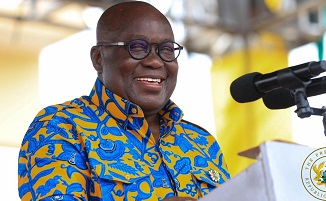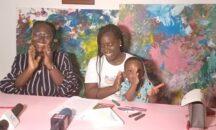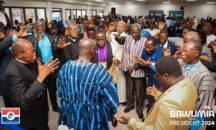Ghana: Time now for ‘democratic education’?

Ghana’s democratic dispensation in the 4th Republic is teaching us so many relevant lessons, as a nation.
And for our “new” democratic journey to “endure” , many Ghanaians strongly believe that our country must invest in the teaching and application of “democratic culture and education” at all levels of our educational ladder.

Mr. Yaw Osei Adutwum,
Education Minister
Ms. Josephine Nkrumah
NCCE boss
Such Ghanaians hold the view that, even a lot of our current educated parliamentarians are “illiterates” in the subject of “democratic culture and education”; besides their “huge” deficiency in grasping the tenets of the 1992 Constitution.
Consequently, they insist that, for our evolving democratic culture to stand the test of time, Ghana must adequately invest in “democratic culture and education”.
Education is a vital component of any society, but especially of a democracy.
Indeed, the object of “democratic education” is to produce citizens who are independent, questioning and analytical in their outlook, yet deeply familiar with the precepts and practices of democracy and democratic culture.
Readers, democratic culture, in this sense, does not refer to art, literature or music, but the behaviours, practices and norms that define the ability of a people to govern themselves.
According to a renowned American scholar, Professor Chester E. Finn: “People may be born with an appetite for personal freedom, but they are not born with knowledge about the social and political arrangements that make freedom possible over time, for themselves and their children.
“Such things must be acquired. They must be learned.”
Professor Chester Finn says:”Education plays a singular role in free societies.
“While the education systems of other regimes are tools of those regimes; in a democracy, the regime is the servant of the people; people whose capacity to create , sustain and improve that regime, depends in a large measure, on the quality and effectiveness of the educational arrangements through which they pass.”
According to the 3rd President of the United States of America, Thomas Jefferson:”If a nation expects to be ignorant and free, in a state of civilization, it expects what never was , and never shall be.”
Democracy is said to be a process, a way of living and working together. It is evolutionary, not static. It requires cooperation; compromise and tolerance among all citizens. Making it work is hard, not easy.
Democracy does not demand that citizens be universally virtuous; only that they will be responsible.
Political competitors do not necessarily have to like one another, but they must tolerate one another and acknowledge that each has a legitimate and important role to play. Moreover, the ground rules of society must encourage tolerance and civility in public debates.
Indeed, it is important to recognise that many conflicts in a democratic society are not between clear-cut “right” and “wrong”, but between differing interpretations of democratic rights and social priorities.
Really, individuals and groups must be willing, at a minimum, to tolerate each other’s differences, recognising that the other side has valid rights and legitimate point of view.
The various sides to a dispute, whether in a local neighbourhood or national Parliament, can then meet in a spirit of compromise and seek a specific solution that builds on the general principle of majority rule and minority rights.
Readers, some Ghanaians contend that there are many “democratic educators” in our tertiary institutions in the country and that if they are linked up with institutions like the National Commission for Civic Education; the Ghana Education Service and some non-governmental “democracy institutions”, a lot can be done in cultivating “democratic education” and culture across the mass of the people of Ghana.
Others are also calling for the establishment of a National Commission for Democracy; with the mandate to “conscientise” the mass of the people of Ghana about democratic education and culture and their practical application towards our national democratic development efforts.
So, readers, the ball is now kicked into the court of our national policy makers, to reflect and initiate a national conversation towards practical development of democratic education and culture and its actualisation in the Republic of Ghana.
Contact email/ WhatsApp of author:
asmahfrankg@gmail.com (0505556179)
BY G. FRANK ASMAH













